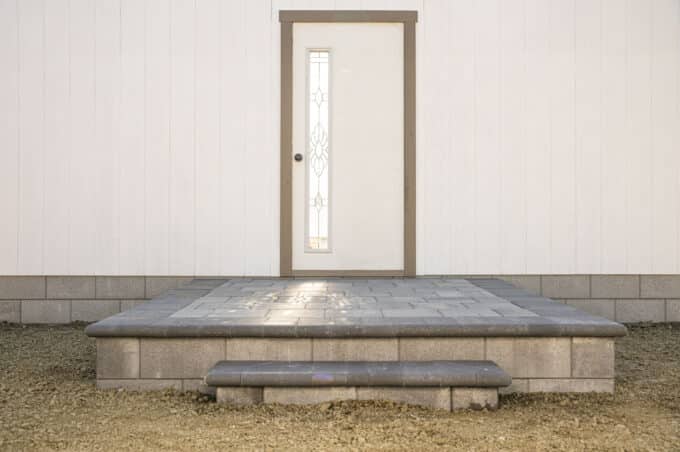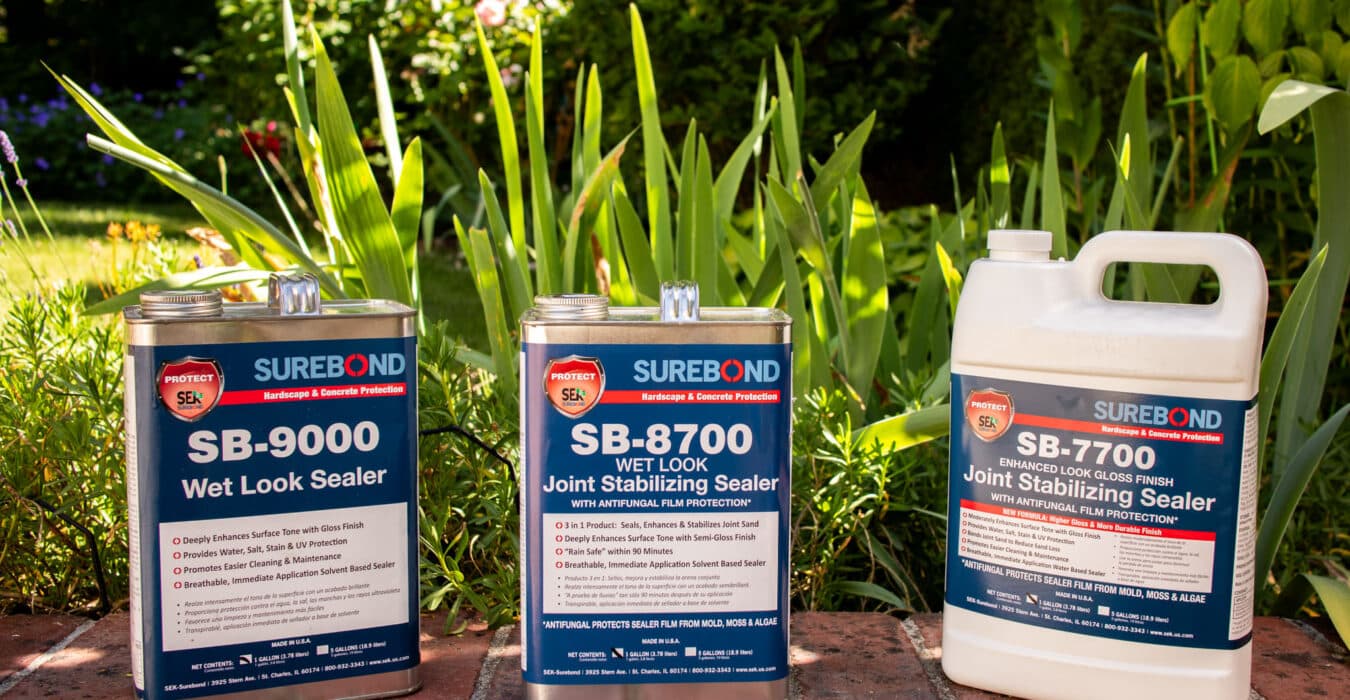
How to Build a Raised Paver Patio
Building a raised paver patio is an excellent option for homeowners who want to expand or raise their outdoor entertainment area and create a cozy, relaxing spot. In this blog […]


Are you ready to seal off your pavers? Are you wondering if the best hardscape sealer is water or solvent based? The many various options can sometimes be overwhelming. How do you know which sealer is best?
We’re here to help. In this blog post, we’ll share all you need to know about what sealer is best for your pavers, as well as some answers to the most common questions about paver sealers.
Both water-based and solvent-based sealers will protect your outdoor surface from wear and tear. They provide a level of stain resistance, as well as UV resistance, and are both easy to apply.
It’s important to note that water and solvent based sealers are not the same thing. Let’s look at some of their differences.
Solvent-based sealers are high in volatile organic compounds (known as VOCs). They have a strong odor and involve a more complicated clean-up process. Solvent-based sealers also give you more of a glossy, wet-looking finish even after they have dried.
Water-based sealers, on the other hand, are low in VOCs. They have a more mild odor and clean-up is easier. Water-based sealers, unlike solvent-based sealers, provide a modern, matte finish on your pavers.
In most cases, water-based sealer is ideal. If you are protecting against the elements, care about odors and VOCs, and want the easiest way to finish your projects (meaning minimal clean-up), a water-based sealant is for you. Water-based is also the only way to get a mild, matte finish instead of a glossy look.
Water-based and solvent-based sealers both work on all pavers. The best sealer for you depends more on the result you want to achieve. If you want a high-gloss finish, the only option is a solvent-based sealer. If you want to protect against oil or grease stains, using a solvent-based sealer is also the best option.
However, if you only need your pavers protected from water, dirt, and other contaminants—and you want their natural look preserved, water-based sealant is the way to go.
To make sure you correctly apply your paver sealer, you should follow our step-by-step instructions. You should also inspect your pavers after you seal them to make sure the coverage is even and consistent throughout the surface. Also make sure the sealer did not puddle anywhere.
If any areas on your pavers appear patchy or discolored, you may need to strip (if water-based) and/or re-apply the sealer.
Some experts say sealer lasts three to five years, and others say it’s between one and two years. Our recommendation is to seal it every year or two. Regularly sealing your pavers will increase the length of time they are protected.
It’s also helpful to factor in your weather, and the type and level of traffic on your pavers. If the pavers are in a heavy traffic area or driveway and you had a harsh winter, the sealer will likely not last as long as a foot-traffic patio.
On average, you can expect your sealer to last between one to five years, depending on external factors—and your best bet is to seal every year for the first few years and then decrease to every two to three years.
Paver sealant is usually not expensive. The cost will vary based on the size of your projects. While we love and support hard-working contractors, it usually will cost up to $3,000 for a contractor to seal your hardscape. But you can seal your paving stones on your own in just a few hours for less than $350.
Do you need help planning your paver project? Download our free Project Planning Guide now and get all the details you need to install a retaining wall, patio, or other beautiful hardscape.

Choosing a paver can sure feel overwhelming. You have to consider size, style, thickness, color, and more. That’s why we made a short and simple quiz that asks a few questions about what you’re looking for and, at the end, provides a recommendation, or two, you can start with.
Learn More